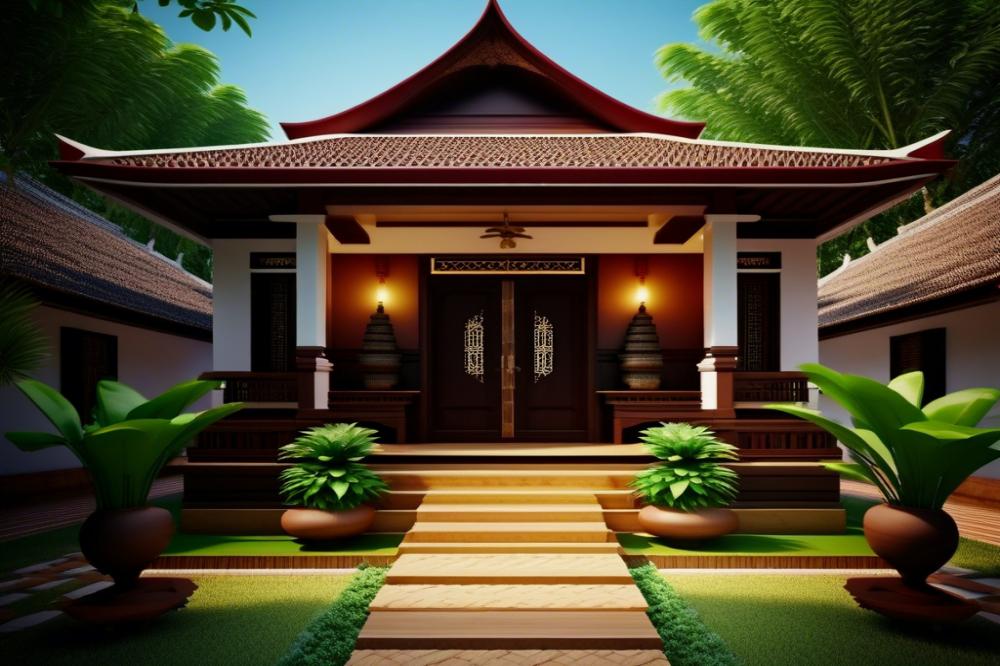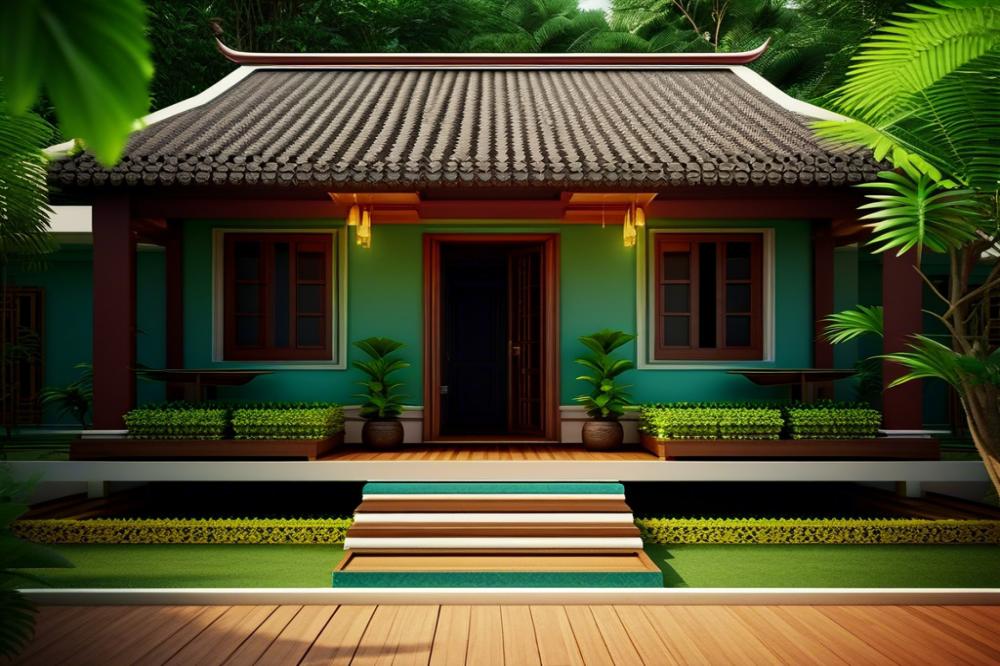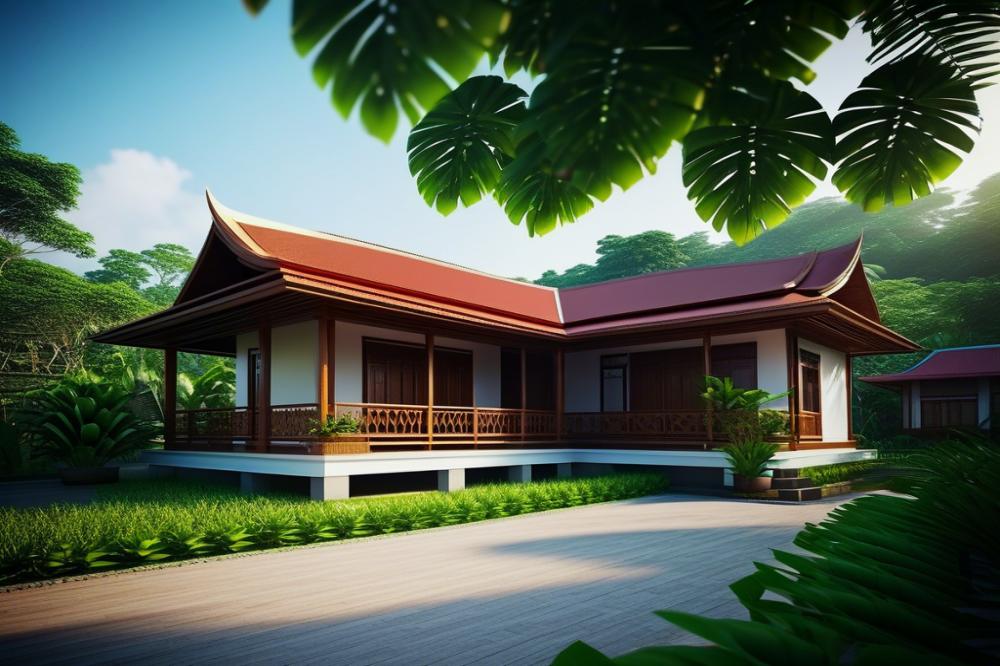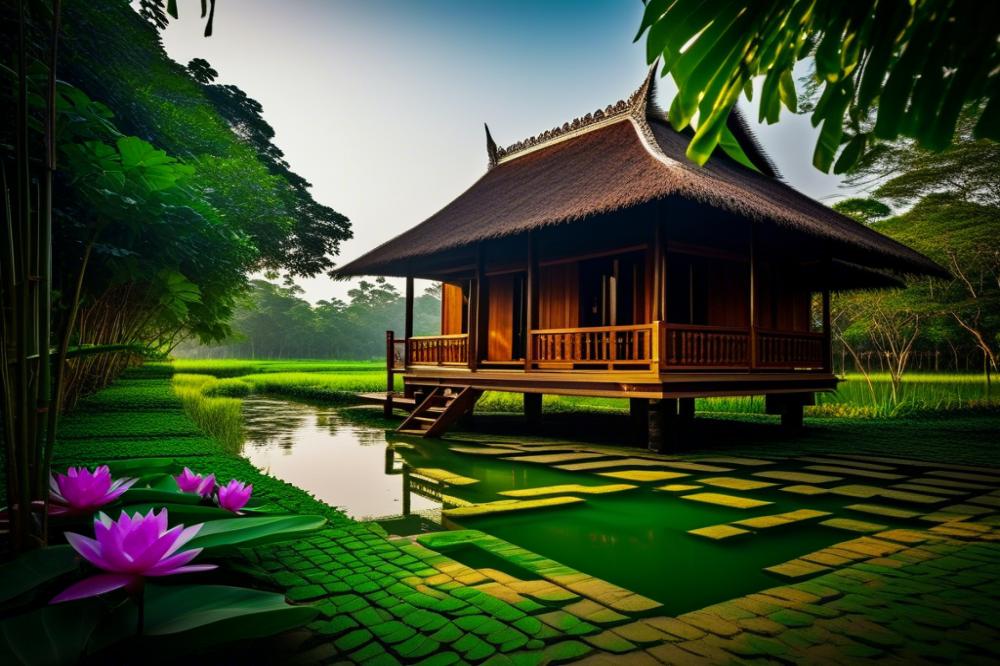Exploring Khmer Homestays in Takeo
Traveling can be a wonderful way to learn about a place. Staying in a Khmer Homestay offers a unique opportunity to dive deep into Cambodian culture. Visitors can experience the warmth of local hospitality while connecting with the community. This kind of accommodation allows travelers to learn about traditional culture and participate in the daily life of local families.
Rural adventures await those who set foot in Takeo. The area is rich in cultural heritage and natural beauty. Surrounding the homestays, lush rice paddies and vibrant greenery create an idyllic backdrop. Guests can enjoy hands-on experiences with traditional crafts, such as weaving and pottery, which have been passed down through generations.
Local cuisine plays a major role in the Khmer experience. Preparing and sharing meals with families opens doors to conversations about history and customs. Eco-tourism has also grown in Takeo, encouraging travelers to engage with their environment responsibly. Engaging in village life allows visitors to understand how communities interact with their surroundings while promoting sustainable practices.
Immersive travel encourages a deeper appreciation for the world. Guests can participate in traditional ceremonies, strengthen cultural exchanges, and forge friendships that last beyond their visit. Each aspect of staying in a homestay enhances the understanding of Cambodian identity. Discovering the charm of Takeo through its people offers lasting memories that go beyond the typical tourist experience.
Understanding Khmer Homestay

A homestay in Cambodia allows visitors to truly immerse themselves in traditional culture. This experience offers much more than just a place to sleep. Guests can engage with local people, learning about their daily routines and customs. Staying in a homestay, travelers have the chance to taste local cuisine. Traditional meals cooked by families provide insight into the flavors of the region.
Living with local families invites you to witness village life firsthand. It creates an opportunity to walk through nearby fields or participate in community activities. Such interactions often lead to memorable moments, where laughter and stories are shared. Cambodian hospitality is known for its warmth, making travelers feel at home in an unfamiliar setting.
Eco-tourism principles guide these rural adventures. These practices focus on sustainable travel that benefits both the environment and local communities. By choosing a homestay, you support local economies and promote community development. Furthermore, this type of travel emphasizes the importance of preserving cultural heritage.
Through immersive travel, you can appreciate traditional crafts. Many families share their skills, teaching visitors how to weave, cook, or create art. This hands-on approach deepens the understanding of local traditions. Bringing home knowledge of these practices enriches the overall experience.
Overall, the blend of hospitality, culture, and eco-tourism makes for an enlightening journey. Guests return home with more than just memories. They leave with stories of village life, shared meals, and friendships formed in the heart of Cambodia.
Exploring Traditional Culture

Takeo offers a deep dive into traditional culture. Visitors can experience local festivals that celebrate Khmer traditions. These events include lively dance performances, colorful parades, and joyful gatherings. Such occasions allow travelers to witness the vibrant spirit of the community firsthand.
Artisans in the area uphold various traditional crafts. Pottery, weaving, and wood carving showcase skills passed down through generations. Tourists can often try their hand at these crafts during workshops. This hands-on experience fosters a deeper appreciation for the cultural heritage of the region.
Sampling local cuisine is another highlight. Meals are often made with fresh, locally-sourced ingredients. Traditional dishes might feature fragrant herbs and spices, offering a taste of authentic Cambodian flavors. Sharing food helps travelers bond with hosts, reinforcing the importance of Cambodian hospitality.
Engaging with village life adds to the overall experience. Many homestays encourage visitors to participate in daily activities. Tasks may include rice harvesting, fishing, or caring for animals. This involvement invites a sense of connection with the community and nature.
Eco-tourism plays a significant role in preserving local traditions. Promoting sustainable practices enables the community to thrive without sacrificing their heritage. Visitors appreciate how homestays contribute to a rural adventure that respects and maintains traditional ways of life.
The experience of staying in a homestay opens doors to immersive travel. Guests often find themselves fully integrated into the rhythms of village life. This journey allows them to witness customs, values, and daily routines that may differ greatly from their own.
By connecting visitors to the essence of Takeo, these homestays cultivate a genuine community experience. They preserve traditions while providing a unique glimpse into the life and culture of the Khmer people.
Savoring Local Cuisine

Cooking is an essential part of Khmer culture. During a homestay experience in Takeo, travelers can immerse themselves in local cuisine like never before. Traditional dishes such as amok (coconut fish curry) and lok lak (beef stir-fry with lime and pepper) offer a taste of Cambodia’s rich flavors. Each meal tells a story, often passed down through generations.
Cooking classes are a joyous addition to the homestay. Hosts welcome guests into their kitchens, sharing both recipes and cooking techniques. Everyone participates in preparing fresh ingredients, often harvested from their gardens. This hands-on experience fosters a deeper connection with the food and emphasizes the role of traditional crafts in maintaining culinary heritage.
Food plays a significant role in community experience. Meals are often a gathering point for families and friends, strengthening bonds within village life. Sharing a meal allows visitors to witness Cambodian hospitality firsthand. It’s common for a table to fill with an array of dishes, encouraging guests to try a bit of everything.
Traditionally, important events in Khmer culture are celebrated with feasts. This highlights the connection between food and social rituals. Whether it’s a wedding, festival, or simple family get-together, each occasion offers an invitation to share. Eco-tourism thrives on these shared experiences, enabling travelers to forge connections with local communities.
Guests should not miss the opportunity to explore local markets. Stalls brim with vibrant vegetables, spices, and fruits, providing a sensory overload. Engaging with local vendors teaches visitors about the sourcing of ingredients. This interaction enriches the understanding of what goes into each dish and the importance it holds.
Rural adventure awaits those who venture into the kitchen. Cooking is more than just a task; it’s an art form. Learning to balance flavors and create harmony in dishes mirrors the intricate fabric of Khmer culture. Each flavor, whether spicy, sour, or sweet, connects back to the land and the people who nurture it.
Experiencing Village Life

When visiting Takeo, travelers step into an authentic Khmer homestay that reveals the rhythm of village life. Many visitors find joy in engaging with locals who are eager to share their customs. Daily routines often include farming, fishing, and participating in community events. Each activity offers a glimpse into traditional culture and age-old practices.
Farming is a core aspect of life in Takeo. Visitors might join local farmers in the fields, planting rice or tending to vegetables. Each season brings its own work, and tourists can experience the satisfaction of harvesting crops. Fishing activities on the nearby rivers allow guests to learn techniques passed down through generations. Trawling with nets or using simple traps can be both educational and fun.
Local cuisine represents another way to connect with villagers. Guests may partake in cooking classes where they learn to prepare popular dishes. Ingredients often come fresh from the market or directly from local farms. Sharing meals with families fosters a deeper understanding of Cambodian hospitality and welcomes guests into the heart of village life.
Community events also play a significant role in rural adventures. Festivals celebrate various cultural heritage aspects. Visitors may find themselves participating in traditional dances, ceremonies, or even games. Such occasions strengthen community bonds and emphasize the importance of togetherness in Khmer tradition.
Opportunities to learn traditional crafts are plentiful. Artisans often welcome tourists to their workshops. Skills like weaving, pottery, or wood carving showcase the rich artistic legacy of the region. Visitors can try their hand at these crafts, gaining insight into both the techniques and the stories behind them.
Choosing an immersive travel experience promotes eco-tourism and supports the local economy. Travelers contribute directly to the community while enjoying a genuine understanding of rural life. This approach not only enhances appreciation for traditional practices but also nurtures lasting connections with the people of Takeo.
The Eco-Tourism Aspect
The Khmer Homestay plays a vital role in promoting eco-tourism in Takeo. By offering visitors a chance to stay in local homes, this type of accommodation fosters a deep connection with village life. Tourists get to experience Cambodian hospitality and engage with the community in a way that standard hotels cannot provide. The experience immerses travelers in traditional culture and local cuisine, allowing them to appreciate the uniqueness of rural adventures.
Sustainable practices are woven into the fabric of homestay experiences. Families often grow their own food, reducing the need for transportation and packaging. Guests are encouraged to partake in workshops that showcase traditional crafts. This not only supports local artisans but also preserves cultural heritage. Moreover, using locally sourced materials for home-stays minimizes environmental impact.
Eco-tourism encourages respect for local ecosystems. Visitors learn about native plants and wildlife, promoting awareness of conservation efforts. Engaging with nature, travelers become partners in protecting the environment. When visitors take part in community-led initiatives, they help drive positive changes that benefit the entire village.
Through this communal experience, a stronger sense of belonging develops. The local population gains financial support, empowering them to continue their traditions and sustain their way of life. Preservation of cultural heritage remains a central focus, as these homestays foster a responsible form of tourism that is beneficial for everyone involved. Travelers leave with memories and a deeper understanding of the place they visited, contributing positively to the community and nature.
Reflecting on the Khmer Homestay Experience
Staying in a traditional Khmer homestay in Takeo offers a wealth of enriching experiences. Guests find themselves enveloped in vibrant local culture, fostering a deep connection to the community. People who visit discover the joys of daily life from a local’s perspective. Engaging with villagers often leads to meaningful interactions that transcend language barriers. Such connections provide a unique window into the heart of Cambodia.
Moreover, visitors have the chance to savor authentic local cuisine. Meals are often crafted using recipes passed down through generations. Sharing a meal with host families becomes a memorable event, where stories and laughter flow along with the food. This culinary experience not only satisfies hunger but also nurtures cultural understanding.
Participating in activities like rice planting or traditional craft-making highlights the region’s dedication to sustainable tourism. This hands-on approach promotes respect for the environment and heritage. By supporting local artisans and farmers, travelers contribute to the economy while enjoying an educational experience. Each of these moments creates lasting memories and enriches the understanding of Khmer life.
Ultimately, immersing oneself in Takeo’s traditional culture through a homestay delivers more than just a place to stay. The overall experience enhances personal growth and appreciation for diversity. Visitors often leave with not only souvenirs but also authentic stories and friendships, making the adventures in Cambodia indeed unforgettable.



